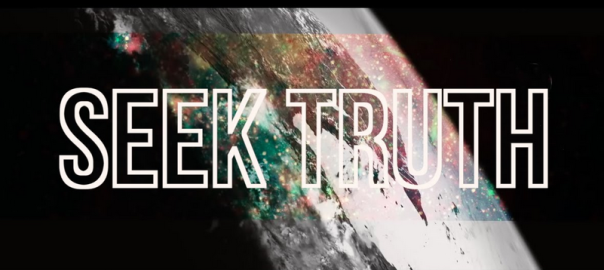
Election 2016
“This is the worst campaign in history.” “Unbelievable – it cannot get any worse!” “Is this the best the two parties can offer?” “How did we get here?” “He is unworthy of being president.” “She is the least qualified candidate in history.” “He is a misogynist, racist and xenophobe.” “She is corrupt, a serial liar and does not like people.” “Half of his supporters are a basket of deplorables…and irredeemable.” “Her Presidency would be a third Obama term – disaster!”
Sound familiar?
The 2016 campaign, while drenched in polarization and vitriol, personal attacks and political corruption…only feels like the worst. The reason it is so disheartening is that we are bombarded 24/7 with accusations, allegations and aspersions that either depress us, inflame our anger or foster apathy.
Perspective Matters
From the 1820s to the present, party politics, including local and national machinery, personal attacks, opposition research and agitation propaganda, have been a part of the American political scene. When Andrew Jackson and John Quincy Adams fought against each other in the 1820s, epithets such as “adulterer” and “scoundrel” were common. When Grover Cleveland ran in the 1880s, his (admitted) fathering of a child outside of marriage was a constant theme of his opponents. In 1916, Woodrow Wilson campaigned with the theme, “He kept us out of war” while plotting for ways to join the Allies against Germany. His behind-the-scenes policies were so egregious that William Jennings Bryan, three-time Presidential candidate, resigned from the Cabinet. In 1928 and 1960, Al Smith and JFK were declared unfit because they were Roman Catholics and therefore loyal to the Vatican over the Constitution.
Insults, sandal, corruption and political manipulations are not new.
What IS new is the level of conscious, willful and public hypocrisy as advocates of both parties excuse the “minor mistakes” of their candidates while magnifying the corruption, depravity and unforgiveable transgressions of their opponents. My wife, Kathleen Self (www.colorbrush.com), affirms that we are in an age of “Polarism” where we would rather shout around and over each other than listen deeply and explore potential common ground.
How do people of conscience and faith navigate in these treacherous waters?
I suggest that there are three broad principles and three specific practices that will help us engage the process fully and retain our sanity, when all around are bitter and hopeless, reacting and retrenching.
Three Principles
Principle One: Remember that our ultimate hope is in the Lord and his present and future reign. The occupants of Congress, the Supreme Court, the White House, our state capitals and city halls are not messiahs, but imperfect women and men that serve the public. They need divine mercy and wisdom – and to be held accountable for their stewardship of public resources. We must discipline our inner life and develop endurance even while actively engaging in political decisions. Nostalgia is the enemy of thoughtfulness. History can inform and inspire, but there are no “good old days” – just days of old when good people made wise decisions.
Principle Two: Our deepest values must guide our decisions; however, we can live peaceably with those that have a different “universe next door.” (James Sire) We will lose some public battles and perhaps win others – what matters long term is winning hearts and minds through insightful ideas, personal integrity and winsomeness. The profoundest ideas presented in anger will fall by the wayside. Advocacy must be accompanied by genuine listening to other perspectives. Tolerance is not agreement – it is the humble discipline of neighborly love when we radically diverge in how we see the most important issues of life.
Principle Three: We must ask and answer the question of vision: What does “there” look like? How do we – and by extension our political leaders – envision a free and just society rooted in virtue providing opportunity for all? How do the economy and education, civil discourse and governmental oversight function in our imperfect but flourishing world? Conservatives and progressives may share more in common than they imagine – but the means by which we achieve our ideal are quite different! Our future rests more on self-regulation and healthy families and neighborhoods versus federal and state governments acting as nannies over specific behaviors.
While we ponder these principles and pursue peacemaking with all people of conscience, there are three practices that foster the possibilities of a flourishing future. These go well beyond the obvious (and necessary) exhortations to get informed and vote. These choices require courage, love and wisdom, a character triad demanding the best of us.
Three Practices
Practice One: When Jesus said that we were to “love our enemies” he implied much more than merciful feelings and restraining revenge. Where possible, we should make friends across every cultural, political, racial and religious divide. People are so much more than their politics or even their gender preference. Each person we encounter is a work of art with much to offer the world. Instead of instant polemics from politics, let’s inquire and learn about art and authors, play and work, and other common interests. If our neighbors are parents or grandparents, focus on their children will bring immediate connection as all people of goodwill desire better for the next generation. Not everyone will respond, but unselfish love united with courage (we may be rejected) and wisdom (knowing cultural mores does matter) can foster a preferred future.
Practice Two: Critical Thinking. Emotions do matter and some of our visceral reactions are actually commendable. When we see injustice, we should be angry! When we experience unexpected blessings, it is time for a happy dance! But emotionalism and allowing our feelings to determine our convictions and decisions is harmful for our personal lives and the good of society. Critical thinking evaluates arguments, ideas and choices. It is not a “critical spirit” that is quick to judge a person whole cloth. There is a difference between evaluating behaviors and policies and declaring someone an outcast and calling names. For example, I stand for traditional, religious marriage and object to pressures that would compel me to perform any ceremonies (gay or straight) against my conscience. I also will defend religious leaders within Buddhist, Hindu, Jewish and Muslim communities that share my convictions. This said, I will not caricature those that disagree with me or refuse to ally with them on other causes. I desire for all others the rights I want for myself. My challenge to all in the chattering classes: will you think deeply before you act decisively?
Practice Three: Let’s start making our neighborhood a better place, joining with others to improve all domains that contribute to human flourishing. We cannot do everything, but we can do something, from supporting local businesses, to mobilizing our churches for poverty alleviation to helping our local schools. This is much more than joining a cause – it is neighborly love! The work we do every day – paid or unpaid, at home of in the office, labor or leadership, field or factory, in a delightful company or one that needs reform – is integral to our devotion to God and service of others. “Love your neighbor” is a call to action, helping all reach their capacities an exercise wise compassion. How do we start? Pray, listen and use gifts and skills to serve. While you are waiting for the bring break in your music career, sing at the senior centers and homeless shelters. While you look for the dream job, start working somewhere, doing the best you can.
Three principles, three practices. The underlying challenge is character. With divine help and personal discipline, we can bring the highest virtues of a humble life to our world and make a lasting impact, not just a good impression.
Election 2016: It is actually more about our personal and national character than any particular candidates. Will be part of an awakening that begins with repentance and faith and ends in renewal and a transformed future? The answer begins with today’s decisions, for they are tomorrow’s destiny.


